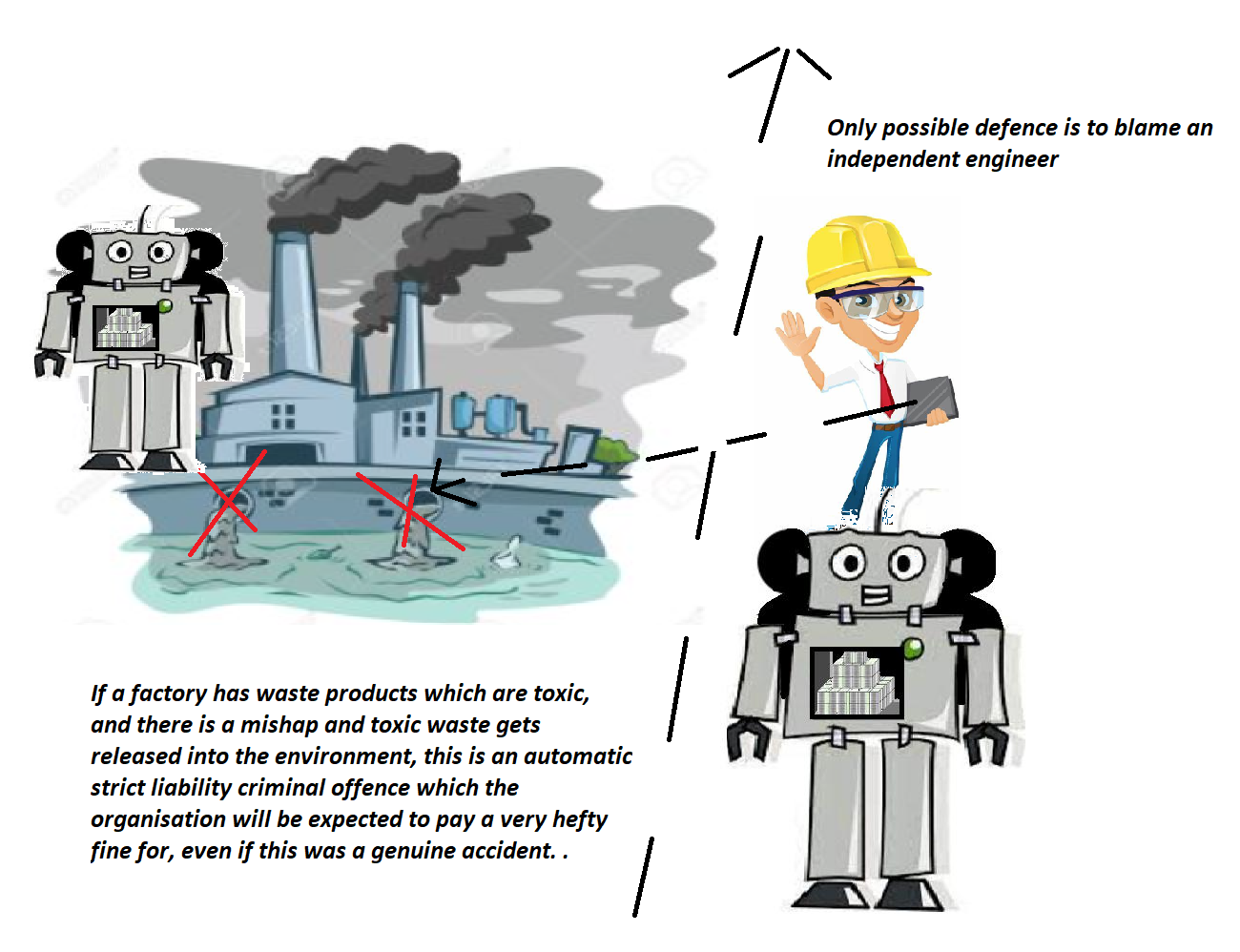Alphacell Ltd v Woodward [1972] AC 824
Citation:Alphacell Ltd v Woodward [1972] AC 824
Rule of thumb:What happens if a business’ pipe bursts and it pollutes a river? This is a strict-liability criminal offence unless it can be shown that it every single precaution possible was taken and it was a fluke occurrence.
Background facts:
The facts of this case were that a factory owner had a burst pipe and this led to toxic waste escaping and polluting a river.
Arguments:
Alphacell argued that this pipe bursting was an accident and that they fixed it as soon as they realised. The prosecution argued that this was a strict liability offence and that the company had not proved that they had taken all reasonable measures meaning it was a complete fluke event.
Judgment:
The Court upheld the arguments of the prosecution. The Court affirmed that this was a strict liability offence and that this was a crime – the Court explained that with strict liability offences once it is proved that the serious act has been done, the onus of proof then switches to the defendant to explain how they took every possible action to prevent this from happening, and if they cannot convince the Court of this, then they are guilty of a crime. The Court further explained that when it comes pollution this is a strict liability criminal offence and negligence does not have to be proved by the other party – all that has to be proved is the fact that the pollution took place, and a very high burden of defending their actions is then placed on the polluting party. The polluter then has to show that they made every possible effort to prevent this pollution, and if the Court is not satisfied that the polluter did everything possible to prevent this pollution, then the polluter is criminally liable for this. The Court in this case was not convinced by the factory’s explanation that they had taken every measure possible to prevent this pollution & the burst pipe from happening, so this was deemed to be a crime.

Ratio-decidendi:
‘If this appeal succeeded and it were held to be the law that no conviction be obtained under the 1951 Act unless the prosecution could discharge the often impossible onus of proving that the pollution was caused intentionally or negligently, a great deal of pollution would go unpunished and undeterred to the relief of many riparian factory owners. As a result, many rivers which are now filthy would become filthier still and many rivers which are now clean would lose their cleanliness. The legislature no doubt recognised that as a matter of public policy this would be most unfortunate. Hence s2(1)(a) which encourages riparian factory owners not only to take reasonable steps to prevent pollution but to do everything possible to ensure that they do not cause it’, Lord Salmon
‘In my opinion causing must be given a common sense meaning and I deprecate the introduction of refinements such as causa, effective cause and novus actus In my opinion, this is a clear case of causing the polluted water to enter the stream. The whole complex operation which might lead to this result was an operation deliberately conducted by the appellants and I fail to see how a defect in one stage of it, even if we must assume that this happened without their negligence, can enable them to say they did not cause the pollution. In my opinion, complication of this case by the concept of mens rea, and its exceptions, is unnecessary and undesirable. The section is clear, its application plain. I agree with the majority of the Court who upheld the conviction, except that rather than say that the actions of the appellants were a cause of the pollution. I think it more accurate to say that the appellants caused the polluting matter to enter the stream...’, Lord Wilberforce
Warning: This is not professional legal advice. This is not professional legal education advice. Please obtain professional guidance before embarking on any legal course of action. This is just an interpretation of a Judgment by persons of legal insight & varying levels of legal specialism, experience & expertise. Please read the Judgment yourself and form your own interpretation of it with professional assistance.

